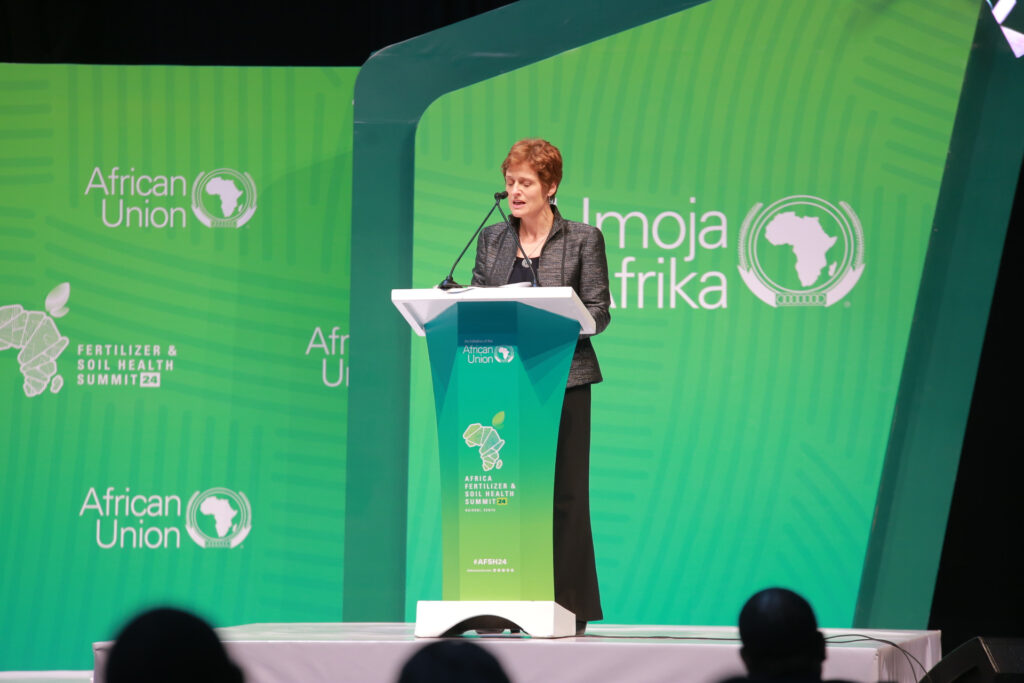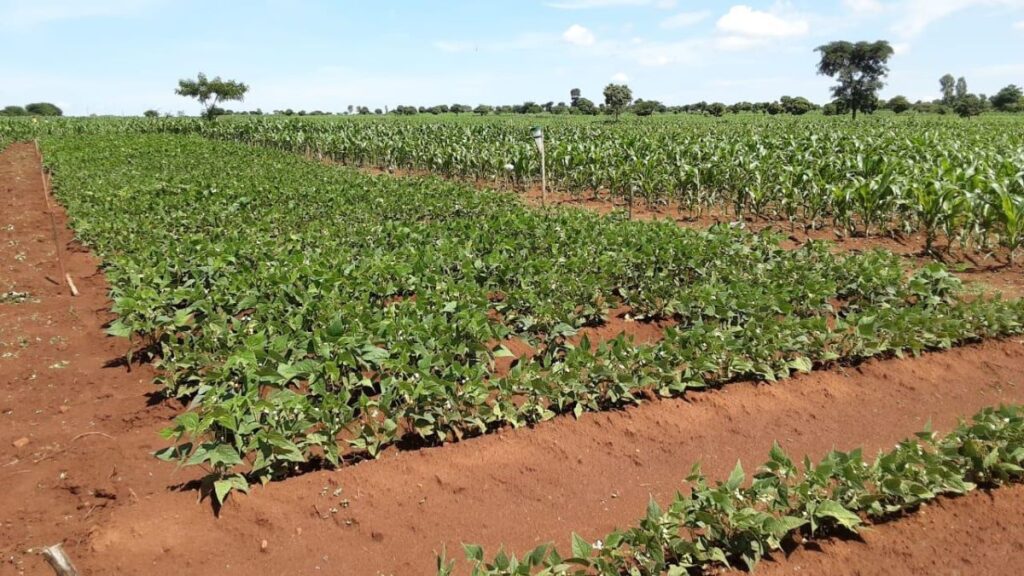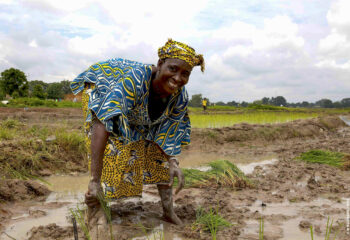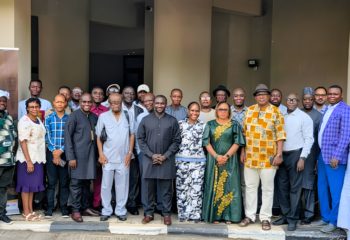
On May 7-9, 2024, the Africa Fertilizer and Soil Health (AFSH) Summit was held in in Nairobi, Kenya. Members of the African Union, partnering governments, and international development organizations resolved to improve African agricultural productivity and sustainability through advancements in soil and fertilizer management.
Among the remarks made at the summit, United States Agency for International Development (USAID) Assistant to the Administrator and Feed the Future Deputy Coordinator for Development Dina Esposito highlighted the role that USAID’s Sustainable Opportunities for Improving Livelihoods with Soils (SOILS)-Space to Place (S2P) can play in improving fertilizer use and economic resilience in sub-Saharan Africa.
Uninformed fertilizer and soil health management leads to lower yields in Africa (Read: Opinion: Balanced fertilizer use is essential to agriculture in Africa). According to Esposito, some yields “are still attaining just 30 percent of their potential” in sub-Saharan Africa. SOILS-S2P aims to significantly bridge the gap between farmers’ knowledge and technical expertise, leading to better outcomes for soil health, farmer livelihoods, and global food security. At present, it is projected that by the end of 2025, S2P will have helped 4.2 million farmers in Africa achieve greater understanding of how to use their land sustainably and to its greatest potential.

With SOILS-S2P’s geospatial approach, no farmer is excluded from agricultural solutions and soil recommendations. SOILS-S2P is “a $40 million effort to expand utilization of improved soil maps and extension support that tailors advice on the types and amounts of fertilizer needed, and how to apply them,” said Esposito. Using satellite imagery and national soil data, SOILS-S2P catalogues soil information for use on farms. This enables governments, extension agencies, and farmers to make accurate and deliberate decisions about fertilizer application and other methods of soil enrichment. Based on the results of different techniques, some are scaled up and adopted in other regions in sub-Saharan Africa to enhance outcomes for other farmers.
SOILS-S2P leverages a multi-pronged collaboration between non-profit organizations, research centers, and governments. Current countries of operation include Ghana, Malawi, Niger, Tanzania, and Zambia, with some knowledge extending further into Kenya, Mozambique, and Uganda. While SOILS-S2P is adapted to address each country’s unique challenges, the initiative is united in its mission to ensure that healthy soils and nutritious food are more abundant in Africa.
The Feed the Future SOILS-S2P initiative, funded by the USAID Bureau for Resilience, Environment, and Food Security (REFS), has been implemented by the International Fertilizer Development Center (IFDC) since 2022. The initiative is currently set to complete work in 2025.
More information about SOILS-S2P can be found in this new infographic published by USAID.




